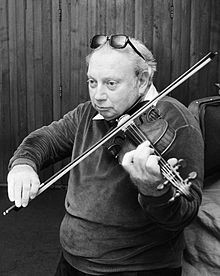Iris Orchestra, that unique hybrid organization headquartered at the Germantown Performing Arts Center (GPAC), yet made up of stellar classical players from across the country and the world, continues apace as one of the most relevant and innovative classical organizations of our time. With the pandemic curtailing any live performances, Iris, helmed by conductor Michael Stern, carries on its multi-dimensional work in other media.
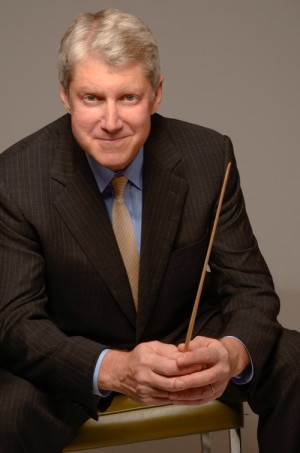 Courtesy Iris Orchestra
Courtesy Iris Orchestra
Michael Stern
As we saw last fall, the facilities at GPAC, coupled with the recording know-how of engineer Jamey Lamar, who captures all of their performances, the orchestra has adapted to a COVID-afflicted world by presenting freshly-recorded performances online in lieu of their regular concert season. Tomorrow and Sunday, their February performances will go live online, featuring performances recorded last weekend, even as Memphis suffered its first wave of February ice and snow.
Beyond that, this month has also witnessed the release of an album boasting the world premiere of a concerto by composer Bruce Adolphe, recorded at GPAC when it was performed by Iris in 2015. Earlier this week, I spoke with Stern about both the album and the online concerts. By the end of our conversation, I was more convinced than ever of our good fortune in hosting this committed group of players.
Memphis Flyer: How did Iris Orchestra come to be involved in this premiere of Bruce Adlophe’s work, I Will Not Remain Silent?
Michael Stern: This is all a happy confluence of events. Sharon Roffman, the featured soloist, is an incredible force. Her mother’s very involved in education and the violin. Sharon had known Bruce Adolphe since she was a kid. He had this idea to write this piece about Joachim Prinz, who was of course so closely aligned with Martin Luther King, Jr., and as it turns out, Prinz married Sharon’s parents.
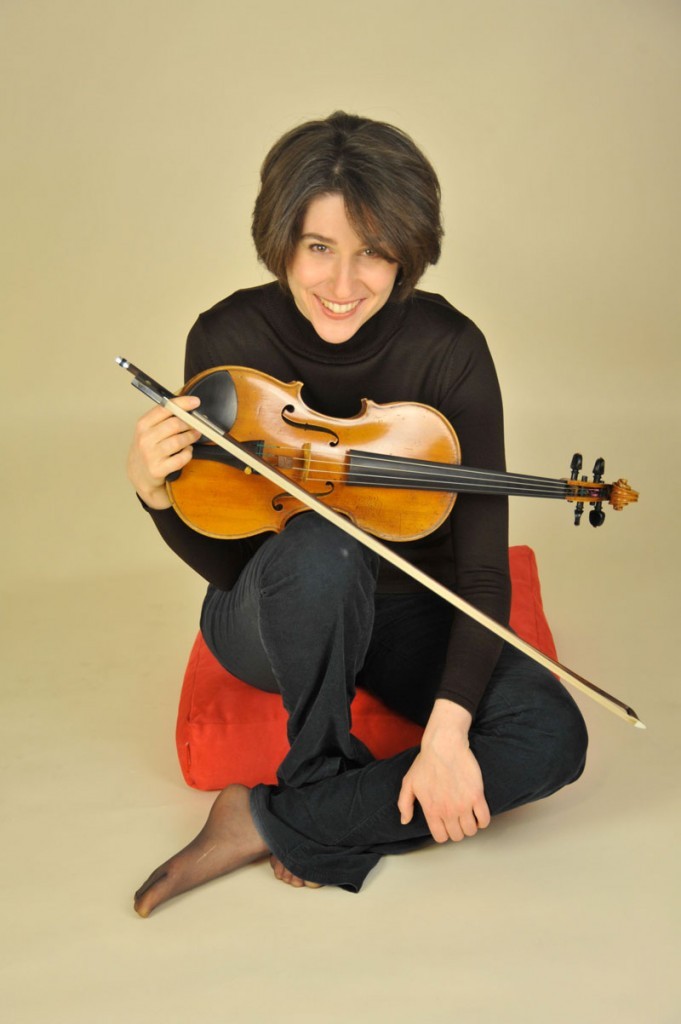 Allen Cohen
Allen Cohen
Sharon Roffman
But above and beyond that, they were both interested in this project which was, first and foremost, a piece of wonderful new music. Secondly, a way to raise awareness about Rabbi Joachim Prinz and Martin Luther King, and to have that connection in terms of civil rights and social justice. But the other thing is, Sharon is passionately committed to education and engagement, especially with young people. Not only were we able to organize the premiere, by rehearsing and recording and performing it, but she, largely, along with Iris Orchestra, organized this community-wide education and engagement project embedded in the curriculum that she distributed to schools and churches and synagogues. We did something at the Jewish Community Center, as I recall, as well as the Civil Rights Museum and Houston High School. We had a writing project associated with it. We had an art project associated with it. And for kids across all lines to learn about the civil rights movement and Martin Luther King, and to learn about 1930’s in Germany and Joachim Prinz and Nazism, was a wonderful experience. So, all the way around it was a really rewarding moment.
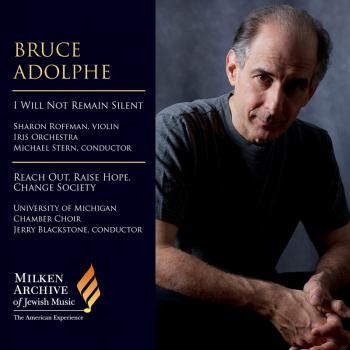
The piece itself is so wonderful. I’ve done it with her since our premiere, and it holds up great. It’s just a really terrific composition, which really speaks to the fundamental subject matter and its importance.
I’ve see the curriculum. It’s really impressive. And it seems the piece itself addresses the subject matter thematically, with orchestral hits battling, so to speak, with this solitary, soaring voice of Sharon’s violin. It’s a striking contrast, and captures the power of a solitary voice speaking truth to power.
I agree. I will say that he’s got a program to it. The first movement is Joachim Prinz in Europe, and the second movement is Joachim Prinz in America. But it doesn’t sound manipulative at all. It doesn’t sound arch. It sounds very authentic and sincere and organic, and the entire piece, just from a musical point of view, works really well.
The second movement really does evoke a new time, a new atmosphere.
It also just underlines the idea that challenge, struggle and eventually overcoming and coming to a place of peace and triumph really transcends color, it transcends religion, it transcends geography. It just is what it is in terms of the human experience and the human condition. I appreciated Bruce’s intent from the beginning. The way he wrote the piece. Sharon was unbelievably devoted to the project, and in it 150 percent. It was inspiring to work on.
So the educational outreach happened around the time of the premiere and the recording in 2015?
Yes, but don’t say the word outreach. It sounds like that’s a one way thing. I prefer the word engagement. My mindset in doing something like this is not to deliver information, it’s to engage young people in this conversation. And I think Sharon especially, and all of us, tried to do that and I think we did do that. And one thing Bruce did, which was fantastic, was, he created a chamber version of the piece. So when we did go around, notably to the high school, we were able to talk about the story and to play some of the concerto without requiring the full orchestra to come. Instead, we could use a chamber ensemble and it made it much more mobile. And then of course, the fact that it was picked up by the Milken Archive of Jewish Music is meaningful, because the music stands as an American concerto, but beyond that, it also has these extra-musical, historical echoes which fit that series absolutely perfectly. I’m proud that our contribution to that series came out so well.
Tell me about the February and March Iris concerts.
What we did for those concerts was just a string orchestra. Not the largest, not the smallest, somewhere in the middle. But nothing we played was an adaptation of anything. We played the pieces the way they were meant to be played.
I would say that COVID interrupted everybody’s plans for a lot of reasons. We can’t be too close to one another on stage, so that puts a cap on the number of players you can have onstage or in the hall at one time. Everybody has to be masked. There are all sorts of precautions and protocols. Beyond that, you can’t have wind players on the stage. The conventional wisdom is that wind players expel more droplets and more of a risk in terms of transmission, than strings or harp or piano would be. So we made the decision that we would just play whatever music we could play. And right now that’s music for strings only. But we present these programs without any sense of compromise. Would we like to get 40-60 more players onstage? Sure. Just not right now. We have to take safety first.
We had the cancellation of our soloist in the February slot. He couldn’t travel because of COVID concerns. He’s healthy, but just due to an abundance of caution he cancelled. Similarly our guest soloist and conductor, Jeffrey Kahane, who was going to play and conduct the March concert, also cancelled. And then we were faced with what do we do? We had already changed those programs, to piece for string orchestra only, now we had to change them again to accommodate those cancellations. And we just made the decision on the fly that we would overload the week and put more performance capture in the can, so we would have performances for February and March without imposing a second trip for all the musicians or for me or the engineers, because we didn’t know, and frankly still don’t know, even though vaccines are rolling out slowly, we still don’t know what the numbers are going to look like in early February and March. So we thought, let’s get as much music recorded as possible, and we’ll broadcast that for our February and March offerings, and keep our fingers crossed for May.
What we did was we took some really great music for strings alone. For February, we have this wonderful piece, a young, extraordinarily talented American composer, Jessie Montgomery, whose music is not only terrific, but also informed by her sense of activism and social justice, and is one of the brightest lights in American music right now. She wrote a piece called ‘Banner,’ which celebrates the 150th Anniversary of the writing of the Star Spangled Banner. But in her piece, built into this celebration, is also the awareness that the Star Spangled Banner should, but doesn’t actually, speak for everybody in this country. And to make those voices, who might be marginalized by the Banner or who have not been as included, historically, she wrote a piece which really reflected on the Pledge of Allegiance and the Star Spangled Banner in a really beautiful way. And we go through that piece… For the February presentation, I was able to sit down with Jessie and we had a conversation about the piece. And that’s a really incredible addition to the program.
On New Album and in Virtual Concerts, Iris Orchestra is Undaunted (2)
We also did this incredibly beautiful, heartrendingly beautiful piece by Puccini, called the Chrysanthemums, which he wrote as a memorial to a great friend of his who passed away. And then we finish with one of the great pieces in the string repertoire, the Dvořák String Serenade. And then in March, we have two other masterpieces, in terms of string repertoire. Mozart’s F major Divertimento for Strings, K138, and the great Tchaikovsky String Serenade. So in these two programs, we’ve got Dvořák and Tchaikovsky and Puccini and Montgomery, and the interview with Jessie. I think it’s a really great overview of some terrific music, and it lets us keep our contact with our public without needing to stop the music because of COVID. So that made us all very happy.
It’s a wonderfully diverse collection. Contrasting the cutting edge, Jessie Montgomery, with Mozart…
Well, we try! We try. Many of us hadn’t seen each other for almost a year. The October recording was a very small group of musicians. It was a chamber ensemble. So it was wonderful to be together.
Were there any special arrangements with the host families?
We spared the host families. We could not, and we would not, put that imposition on them. This is not the time to invite other people to your house, even cherished friends. So we put everybody up in a hotel.
Jessie didn’t perform with Iris, but Jessie Montgomery is a force of nature. She’s a wonderful violinist. She was composing a lot of music while she was still an active member of a regular string quartet, and she’s doing her doctorate at Princeton University. She is a very busy, very talented, very accomplished woman.
We’ve had this tradition of having chamber concerts at Brooks Museum. Of course we could not do that, but we didn’t want to deprive our audience of anything, so three of our musicians stayed an extra day. Jamey stayed the extra day, and they got that filmed and it was a great success.
I think there are some silver linings to COVID. Not many. It’s been a terrible time. And hopefully now, with a new feeling in the country, we can maybe start to address some of the divisiveness and some of the rancor. But I do think you need to try to see some good in everything. COVID has taken its toll, and yet in the process of going through it, the fact that we were isolated, but also technically involved with the regular routine of everything, meant that people could actually consider what was happening.
And then you had the issues that were in front of all of us, and rightly so, with long overdue conversations, and I think people considering the real meaning, whether it’s Black Lives Matter or the environmental issues before us, or the terrible political divisiveness, we were able to process that with a little less knee jerk reaction and a little more thoughtfulness. And I do think, and I’m very encouraged by the fact that the reaction to those things did not simply become a flash point for a few weeks and then fade. I think the awareness that we are going to do better, and the awareness that the world is a little closer to real justice, is here to stay. And I think that is a really healthy thing. I can’t help but think that maybe that in and of itself is worth celebrating, and that’s a good thing.
Watch Bruce Adophe discuss “I Will Not Remain Silent” below.
On New Album and in Virtual Concerts, Iris Orchestra is Undaunted
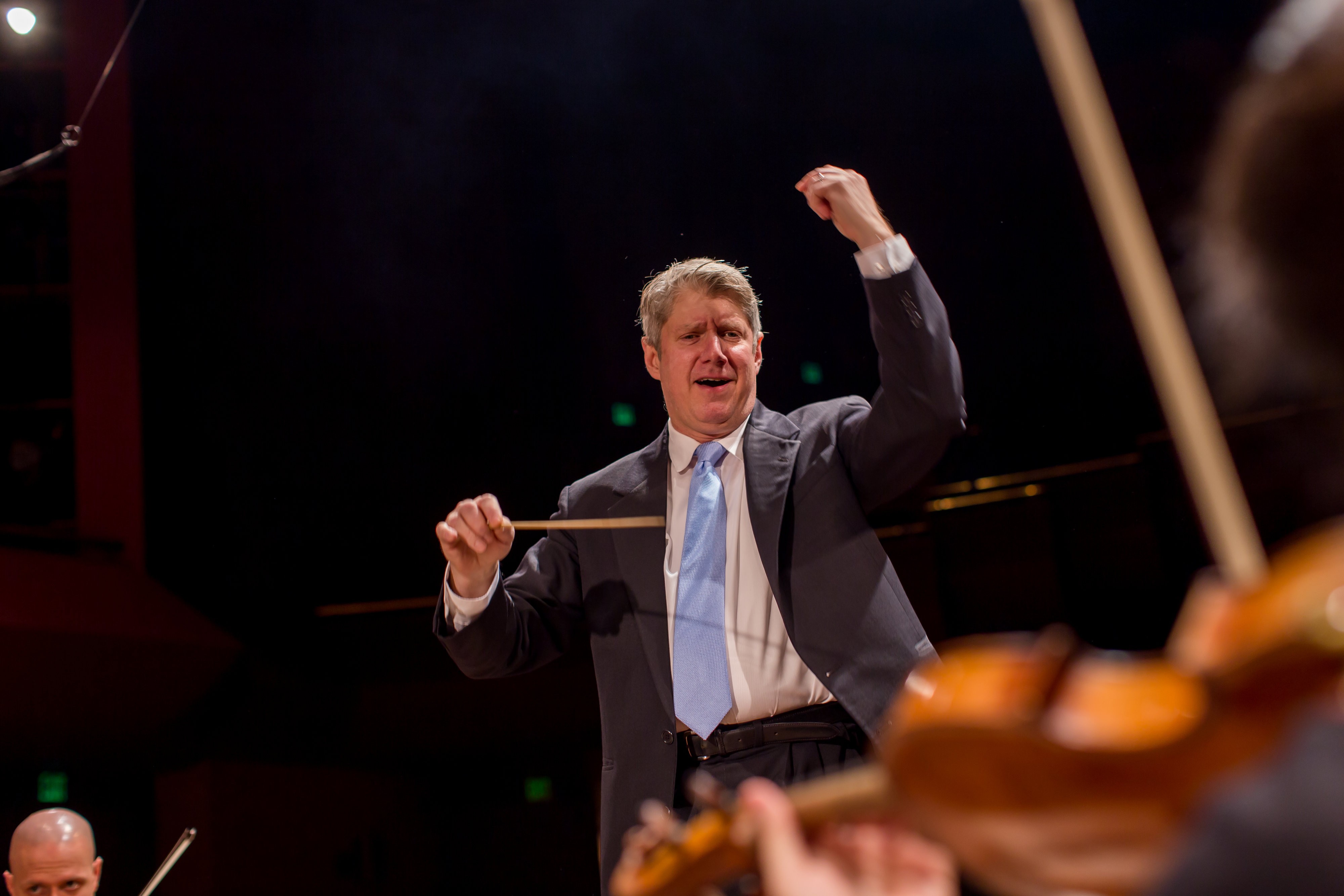 Michael Allen
Michael Allen 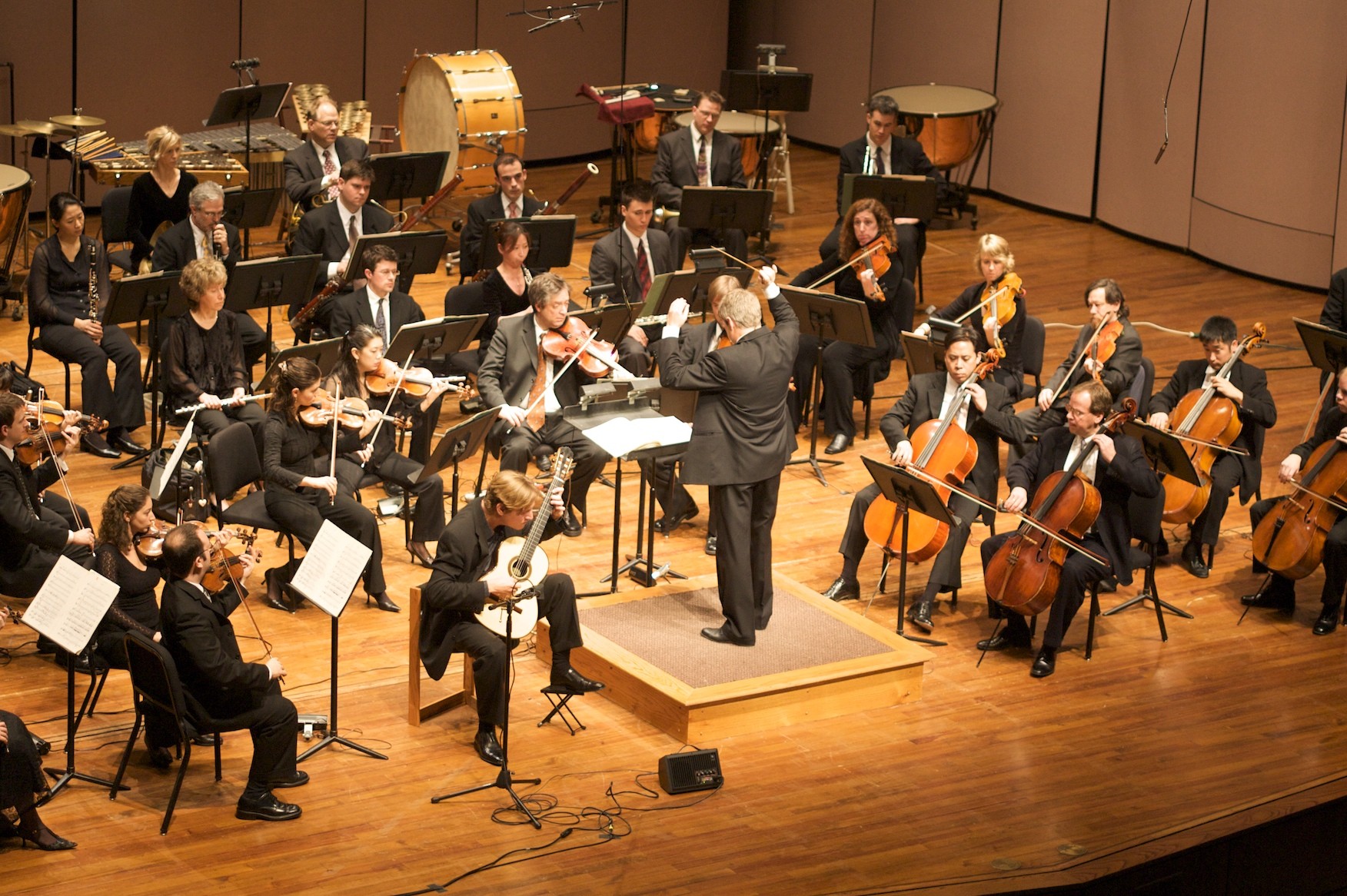 courtesy Iris Orchestra
courtesy Iris Orchestra 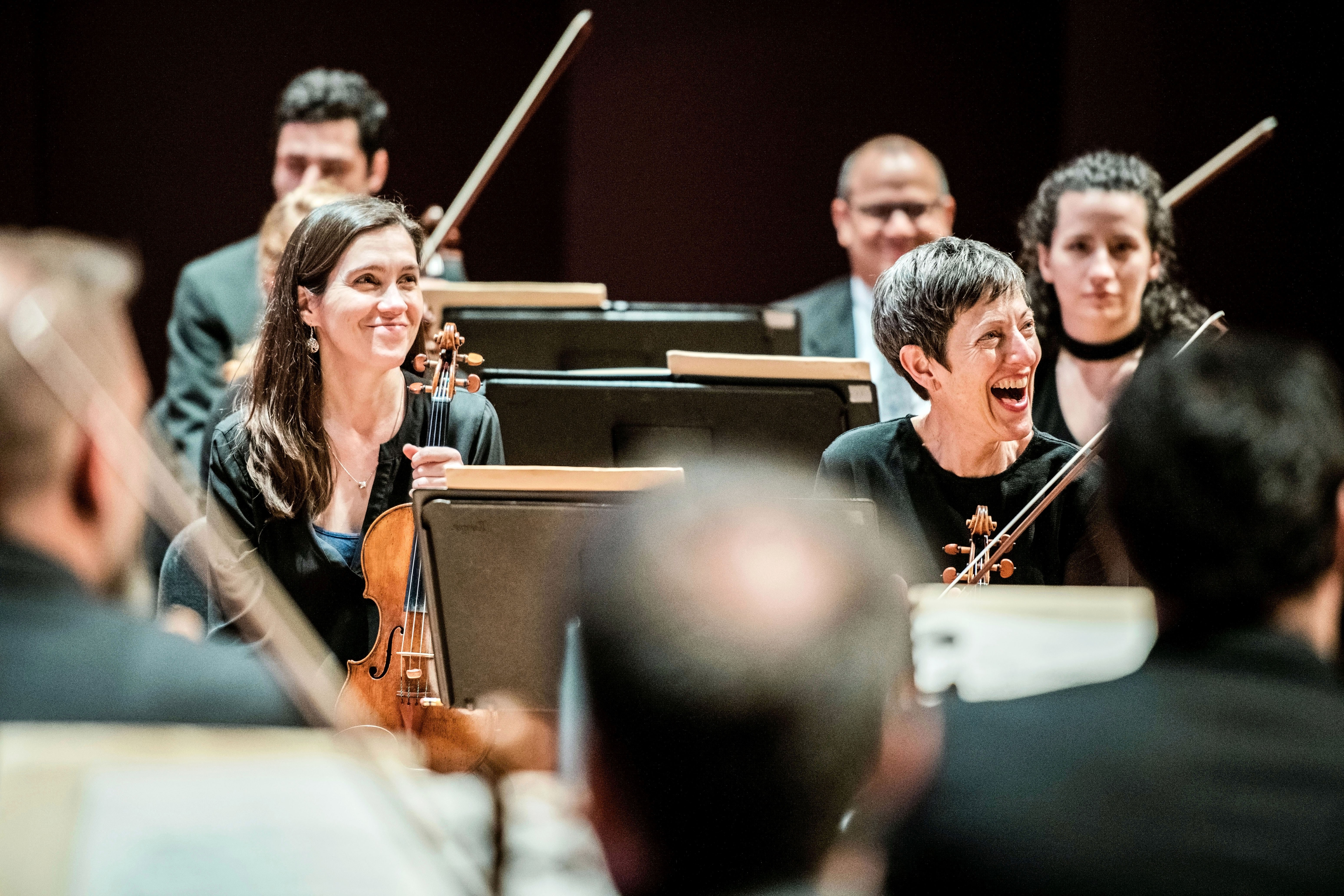 Phillip Van Zandt
Phillip Van Zandt 